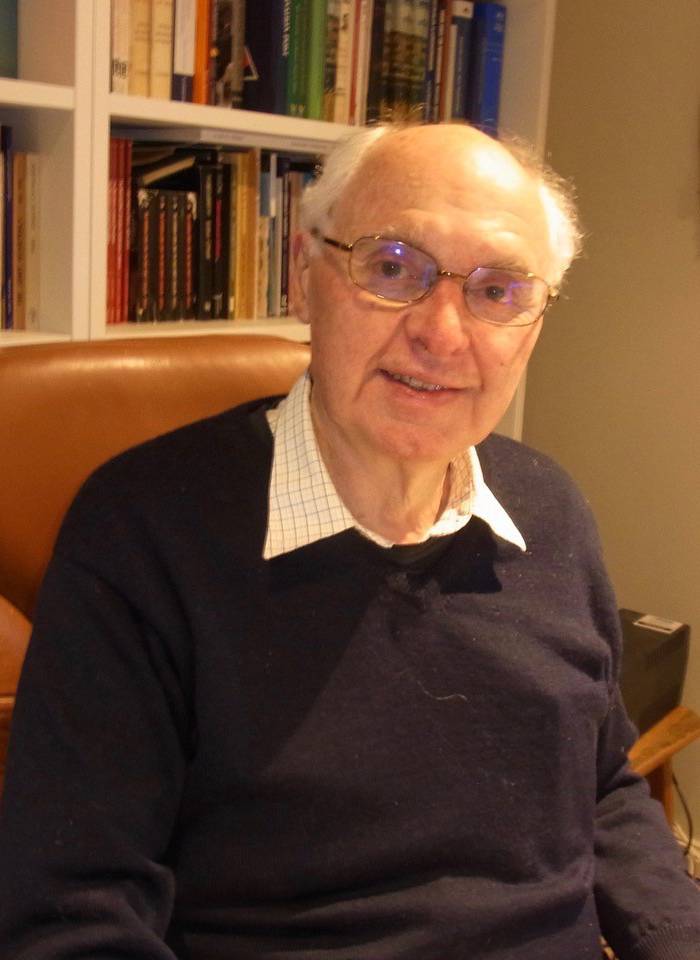Jubilee Fellow – 2018

Professor Robert O’Neill AO
BA, BEd, PhD (Melbourne), FASSA
Discipline: History
Year Elected: 1978
2018 Reflections
When I was elected to the Academy in 1978 I had been an academic for ten years, in the controversial field of strategic studies. I had decided in late 1966, half way through my time in Vietnam, to leave the Army after returning home, and see what I could do towards the development of better policies than those that Australia had been following through the 1950s and 60s. I was lucky to have had that option. My doctoral thesis, on Hitler’s plan for the conquest of Europe, and how his Army reacted to it in the 1930s, had met with a good reception when it was published in 1966. The ANU was keen to bring in someone who could take over its recently founded Strategic and Defence Studies Centre, in succession to Tom Millar. That was my opening to a broad field in which two other ANU based fellows of the Academy, Bruce Miller and Hedley Bull, were playing leading roles
Initially I worked closely with Hedley in the field of arms control, and we were successful in winning a major grant from the Ford Foundation for teaching and research on arms control in the Asian-Pacific region. That meant selecting scholars and graduate students from countries over a wide arc, from Pakistan to Japan, which gave me familiarity with their universities and leading scholars in our field. We also tackled the shaping of a better policy for Australia than “forward defence”, in which Des Ball, Ross Babbage, Jol Langtry and I worked together to develop new concepts and proposals. As a personal project I took on the writing of the Official History of Australia’s role in the Korean War. The salient feature of the history was its revelation that the strategic and diplomatic aspects of our participation in that conflict were more significant than our military role.
During the 1970s I spread my wings and travelled abroad to relevant centres in Europe, the US and Asia to conduct research and attend conferences. I was elected to the Council of the International Institute for Strategic Studies (IISS) in London in 1977 and my links with European and North American institutions in my field intensified. In 1982, after a keen round of competition with European contemporaries, I was chosen to become the next Director of the IISS. The first volume of my Korean War history had been published in 1981 and I had just completed writing the second, so I was free to move. I spent five years at the IISS and then, when the Chichele Chair of the History of War at Oxford became vacant, I was selected to follow Michael Howard in 1987.
The IISS appointment had given me the chance to meet and make friends with hundreds of people in my field around the world. The Chichele Chair gave me a great teaching opportunity. In the fourteen years for which I held the chair, I supervised over fifty successful doctoral theses and most of their authors have continued to stay in touch with me, giving me new insights and intellectual stimulus as their own work advanced into the 21st century.
While in the UK I also became involved in helping several relevant institutions to develop and strengthen their resource bases, such as the Menzies Centre for Australian Studies and the Centre for Defence Studies at the University of London, the Imperial War Museum and the Commonwealth War Graves Commission. I was Chairman of the boards of the first three, and also, from 1996 to 2001, of the Council of the IISS. I particularly enjoyed working together with Jim Walter when he was Director of the Australian Studies Centre.
When I reached my retirement age of 65 in 2001, my wife Sally and I decided it was time to come home, so we bought a property on the western side of the Blue Mountains, near Mudgee, and focused on enjoying the Australian bush, the sandstone cliffs of our valley, and helping its plant and animal life to recover from many years of human activity around them. I continued to work as the first Chairman of the board of the Australian Strategic Policy Institute, a board member of the Lowy Institute, and Deputy Chairman of the Graduate School of Government at the University of Sydney. The ANU made me an Emeritus Professor, which facilitated my return to closer links with the Strategic and Defence Studies Centre. The University of Sydney asked me to be a strategic adviser for their (successful) bid for the funds offered by the Howard Government for a United States Studies Centre in 2006.
It has been a busy time but I have now retired from most of those posts and enjoy a more locally based intellectual life. Blackheath, where we now live, is not called the Balmain of the Blue Mountains for nothing. Sally and I helped to establish the Blackheath History Forum, now in its tenth year, and I belong to a discussion group on international affairs which meets weekly over several cups of coffee.
For the past forty years I have enjoyed the intellectual companionship and support of our Academy. While, for much of this period, I have not been able to take part in regular meetings and conferences, the Academy has been a valuable linkage for me, to the wider world while I have been in Australia, and to Australia while I have been working abroad. It has been an honour to have the letters FASSA after my name. I am very grateful for your offering me that distinction, and for the award you are making to mark my forty years of Fellowship tonight.